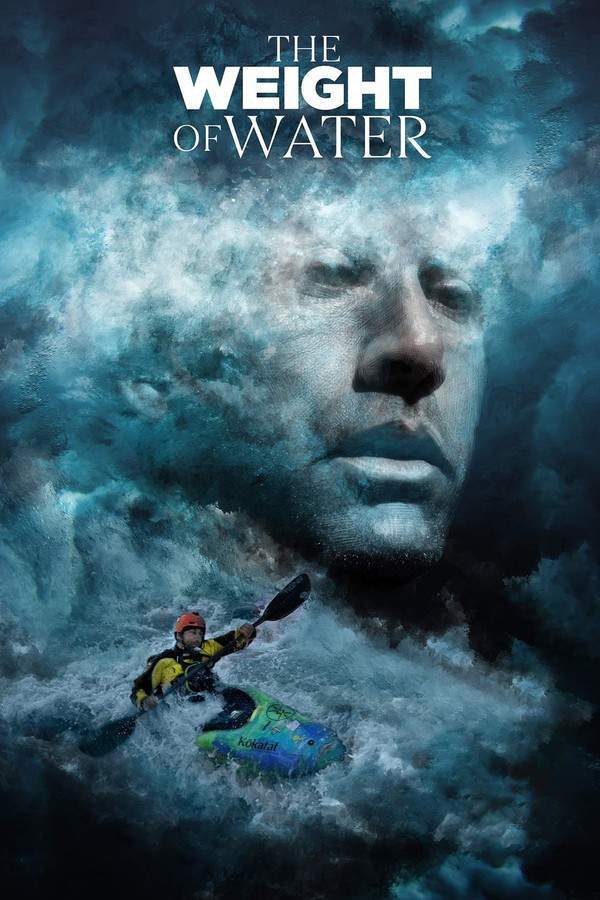
Walk on Water 2005
Directed by

Eytan Fox
Made by

Samuel Goldwyn Films
Test your knowledge of Walk on Water with our quiz!
Walk on Water Plot Summary
Read the complete plot summary and ending explained for Walk on Water (2005). From turning points to emotional moments, uncover what really happened and why it matters.
Eyal, portrayed by Lior Ashkenazi, is a highly skilled Mossad agent known for his ruthlessness and efficiency in eliminating Palestinian targets. The film opens with a thrilling scene in Istanbul, showcasing his lethal expertise. However, his life takes a tragic turn when he returns home to the devastating news of his wife’s suicide, leaving him deeply unsettled.
His superior, Menachem (a character played by Gideon Shemer), informs him that his next mission will diverge from his usual assignments. Eyal is tasked with locating a former Nazi officer named Himmelmann, who has been evading them for years. Although Himmelmann is now elderly and his exact whereabouts are unknown, they have identified that his granddaughter lives on a kibbutz in Israel, and that his grandson, Axel, played by Knut Berger, is visiting and will need a guide from the Israeli tourist agency. Eyal is to fulfill this role and gather intelligence on the family.
At the airport, Eyal meets Axel and begins what seems to be an innocuous chauffeur job. He drives Axel to the kibbutz where they encounter Pia, played by Caroline Peters. While the kibbutz lacks excitement, the evening brings folk dancing, where Pia appears to take an interest in Eyal. However, he maintains a barrier, as he is still grappling with the loss of his wife.
Eyal covertly monitors Pia’s room, eavesdropping on her and Axel’s conversations, which suggest that the old Nazi is still alive and in contact with the family, although specific details remain elusive. As they journey through Israel’s tourist sites together, a bond forms between Eyal and Axel. Despite their growing friendship, a significant gap exists in their perspectives; Axel embraces his sexuality openly, while Eyal carries deep-seated bitterness towards Palestinians. As the news broadcasts daily reports of bombings that claim Israeli lives, Eyal’s animosity is further inflamed, contrasting sharply with Axel’s more progressive and open-minded outlook.
The plot thickens during a trip to the Dead Sea, where both men take a moment to swim in the open, shedding their clothing. Their conversation shifts from personal subjects to deeper issues regarding identity, hinting at Axel’s feelings toward Eyal. Yet, Eyal, clinging to his assertion of heterosexuality, seems oblivious to Axel’s suggestions, and silently battles with his emerging self-awareness.
As time passes, Eyal grows frustrated with the focus on a geriatric Nazi instead of more pressing matters. With Axel set to return to Germany, he offers Eyal his contact information, suggesting that they could reconnect in Berlin, an idea Eyal dismisses. Frustrated with the operation, he presents a recorded conversation to his boss without having listened to it. However, when Menachem reviews the tape, he discovers a family celebration planned in Berlin, prompting Eyal to travel there immediately.
Upon arriving in Berlin, Eyal unexpectedly reunites with Axel, who seems curious about Eyal’s motivations. An encounter in a café reveals that Menachem is watching Eyal from a distance, subtly urging him to proceed with his assignment to eliminate the Nazi, while Eyal grapples with his wavering resolve.
Their exploration of Berlin leads them to a gay club, where Eyal inquires about same-sex relationships but remains reluctant to engage. Their night takes a dangerous turn when they confront skinheads attacking Axel’s drag queen friends. Eyal fearlessly intervenes, showcasing his combat skills and fluency in German, a reflection of his family’s hidden history tied to WWII.
Eventually, Eyal is invited to the family birthday gathering, where he faces the unsettling presence of Himmelmann, portrayed by Ernest Lenart, who is gravely ill. Struggling with his mission’s morality, Eyal’s turmoil deepens, and a pivotal shift occurs with Axel, who, disillusioned by his grandfather’s legacy, decides to take drastic action by disabling the old man’s life support.
In a heart-wrenching revelation, Eyal shares with Axel that his wife’s suicide was a response to the death and chaos that seem to follow him, a truth highlighted in her note. The emotional layers peel away as Eyal breaks down, finally allowing himself to feel the weight of his grief and vulnerability, leaning on Axel’s compassion in this moment of connection.
Walk on Water Timeline
Follow the complete movie timeline of Walk on Water (2005) with every major event in chronological order. Great for understanding complex plots and story progression.
Eyal's Mission Begins
The film opens with Eyal demonstrating his lethal expertise in Istanbul, showcasing his skills as a Mossad agent. This thrilling scene sets the tone for his complex character, highlighting his ruthlessness and efficiency in dealing with Palestinian targets.
Tragic News at Home
Eyal returns home only to be devastated by the news of his wife’s suicide. This personal tragedy leaves him deeply unsettled and begins to influence his emotional state throughout the film.
New Mission Assigned
Eyal's superior, Menachem, informs him that his next mission differs from his usual assignments. He is tasked with locating Himmelmann, an elderly Nazi officer, which marks a significant shift in Eyal's operational focus.
Following the Grandchildren
Eyal learns that Himmelmann's granddaughter lives on a kibbutz in Israel, and his grandson Axel is planning a visit. This intel leads him to assume the role of Axel's guide, aligning with his mission to gather information about the family.
Meeting Axel
Upon arriving at the airport, Eyal meets Axel and begins what appears to be a benign chauffeur job. Their journey to the kibbutz marks the start of a complex relationship between the two men.
Folk Dancing at the Kibbutz
While at the kibbutz, Eyal participates in an evening of folk dancing where Pia, a local woman, shows interest in him. However, Eyal maintains a guarded demeanor as he struggles with the pain of his recent loss.
Monitoring Conversations
Eyal takes to covertly eavesdropping on Pia and Axel’s discussions, suspecting that Himmelmann is still alive and keeping in touch with the family. His surveillance highlights both his professional instinct and personal isolation.
Bonding with Axel
As Eyal and Axel explore various tourist sites in Israel together, a bond begins to form between them. Despite their growing friendship, a difference in ideology and perspective on life adds tension to their connection.
Intimacy at the Dead Sea
During their trip to the Dead Sea, Eyal and Axel share a moment of vulnerability while swimming. Their conversation veers into personal territories, hinting at Axel’s feelings for Eyal, but Eyal remains oblivious to these undercurrents.
Frustration with the Mission
As time goes on, Eyal expresses frustration regarding the operation focusing on an elderly Nazi instead of more pressing threats. His dismissive attitude towards reconnecting with Axel in Berlin captures his emotional turmoil.
Unexpected Encounter in Berlin
Eyal travels to Berlin and unexpectedly reunites with Axel, who questions Eyal’s motivations for being there. This meeting adds layers of complexity to their relationship as Eyal continues to battle with his mission's objectives.
The Gay Club Incident
Their night out at a gay club leads to trouble when Eyal confronts skinheads attacking Axel’s friends. Eyal’s intervention showcases his combat skills and connects him to unresolved family issues related to WWII.
Family Reunion Celebration
Eyal is invited to a family birthday party where he finally comes face to face with Himmelmann. The emotional stakes heighten as Eyal grapples with the morality of his mission amidst the backdrop of familial ties.
Axel's Drastic Decision
During the family gathering, Axel decides to take drastic action by disabling his grandfather’s life support, motivated by his disillusionment with Himmelmann's legacy. This act signifies a pivotal shift in Axel’s character.
Eyal's Emotional Breakdown
In a powerful and emotional exchange, Eyal reveals the truth about his wife's suicide and the turmoil he has been carrying. This moment of vulnerability brings Eyal closer to Axel, allowing for deep emotional connection amidst their chaotic lives.
Walk on Water Characters
Explore all characters from Walk on Water (2005). Get detailed profiles with their roles, arcs, and key relationships explained.
Eyal (Lior Ashkenazi)
Eyal is a highly skilled and ruthless Mossad agent, whose professional façade begins to crumble under personal grief. His journey forces him to confront his troubled emotions while navigating the moral implications of his mission. Eyal's character embodies the struggle between duty and personal integrity.
Axel (Knut Berger)
Axel is a young man grappling with his identity and family legacy as he navigates his sexuality and personal beliefs. He serves as a contrast to Eyal, embracing an open-minded and progressive outlook. His connection with Eyal highlights themes of compassion and the potential for personal growth.
Pia (Caroline Peters)
Pia is a character who represents innocence and connection within the kibbutz setting. She shows interest in Eyal, yet her presence also highlights Eyal's emotional barriers. Her role adds depth to the narrative, bridging the gap between Eyal's grief and the warmth of new relationships.
Walk on Water Settings
Learn where and when Walk on Water (2005) takes place. Explore the film’s settings, era, and how they shape the narrative.
Time period
The film is set in a contemporary time period that resonates with ongoing socio-political issues. It reflects the complexity of identity and historical burdens faced by individuals against the backdrop of modernity. Key references to current events, such as bombings and political tension, place the narrative in a relevant context for today.
Location
Istanbul, Israel, Berlin, Dead Sea
The movie begins in Istanbul, known for its rich history and vibrant culture, where Eyal showcases his Mossad skills. The journey moves through various sites in Israel, including kibbutzim, and culminates in Berlin, a city steeped in historical significance, reflecting the aftermath of WWII and a contemporary gay culture. The Dead Sea, famous for its unique salt properties, serves as a poignant backdrop for character exploration.
Walk on Water Themes
Discover the main themes in Walk on Water (2005). Analyze the deeper meanings, emotional layers, and social commentary behind the film.
💔
Grief
Grief pervades the narrative as Eyal grapples with the loss of his wife, whose suicide casts a long shadow over his actions and decisions. This theme is intricately tied to his mission and relationship with Axel, as both characters confront their own emotional struggles. Eyal's journey towards vulnerability reflects the healing process, highlighting how grief can lead to unexpected connections.
🏳️🌈
Identity
Identity is a central theme explored through the contrasting characters of Eyal and Axel. While Eyal exhibits a rigid male identity shaped by his past, Axel's openness challenges Eyal's perceptions and beliefs. Their interactions reveal deeper questions about sexuality, cultural legacy, and self-acceptance amidst external pressures that often dictate identity.
⚖️
Morality
The moral complexities surrounding Eyal's mission are critically examined throughout the film. His struggle between duty and empathy towards the elderly Nazi officer encapsulates the nuances of justice vs. revenge. This theme fosters a broader dialogue about historical wrongs and the ethics of confronting one's past.

Coming soon on iOS and Android
The Plot Explained Mobile App
From blockbusters to hidden gems — dive into movie stories anytime, anywhere. Save your favorites, discover plots faster, and never miss a twist again.
Sign up to be the first to know when we launch. Your email stays private — always.
Walk on Water Spoiler-Free Summary
Discover the spoiler-free summary of Walk on Water (2005). Get a concise overview without any spoilers.
In the restless landscape of contemporary Israel, a seasoned Mossad operative is called away from his usual counter‑terror work toward a haunting, decades‑old pursuit. Eyal, a consummate professional known for his unflinching efficiency, is still reeling from a personal tragedy that has left him emotionally adrift. His world is a blend of meticulous intelligence work and the lingering shadows of loss, setting a tone that balances gritty realism with an undercurrent of melancholy.
His superior, Menachem, offers a mission that diverges sharply from the usual target list: to locate a former Nazi officer whose presence still echoes through history. The assignment forces Eyal to step into a civilian guise, becoming a guide for a young traveler linked to the suspect’s family. This encounter introduces Axel, a charismatic and open‑minded grandson whose personal outlook challenges the operative’s hardened perspective, while the warm, communal atmosphere of a kibbutz hints at a simpler, more human side of Israeli life.
As the two men navigate tourist sites and shared moments, the film gently probes the uneasy terrain between duty and conscience. The emerging bond between Eyal and Axel is fraught with cultural and generational tensions, offering a nuanced look at identity, grief, and the lingering weight of historical atrocities. The narrative’s tone remains contemplative yet taut, inviting the audience to consider how far one can stretch in the name of justice before the line between hunter and human blurs.
Can’t find your movie? Request a summary here.
Movies with Similar Twists and Themes
Uncover films that echo the narrative beats, emotional arcs, or dramatic twists of the one you're exploring. These recommendations are handpicked based on story depth, thematic resonance, and spoiler-worthy moments — perfect for fans who crave more of the same intrigue.
Featured on this page

What's After the Movie?
Not sure whether to stay after the credits? Find out!
Explore Our Movie Platform
New Movie Releases (2026)
Famous Movie Actors
Top Film Production Studios
Movie Plot Summaries & Endings
Major Movie Awards & Winners
Best Concert Films & Music Documentaries
Movie Collections and Curated Lists
© 2026 What's After the Movie. All rights reserved.















